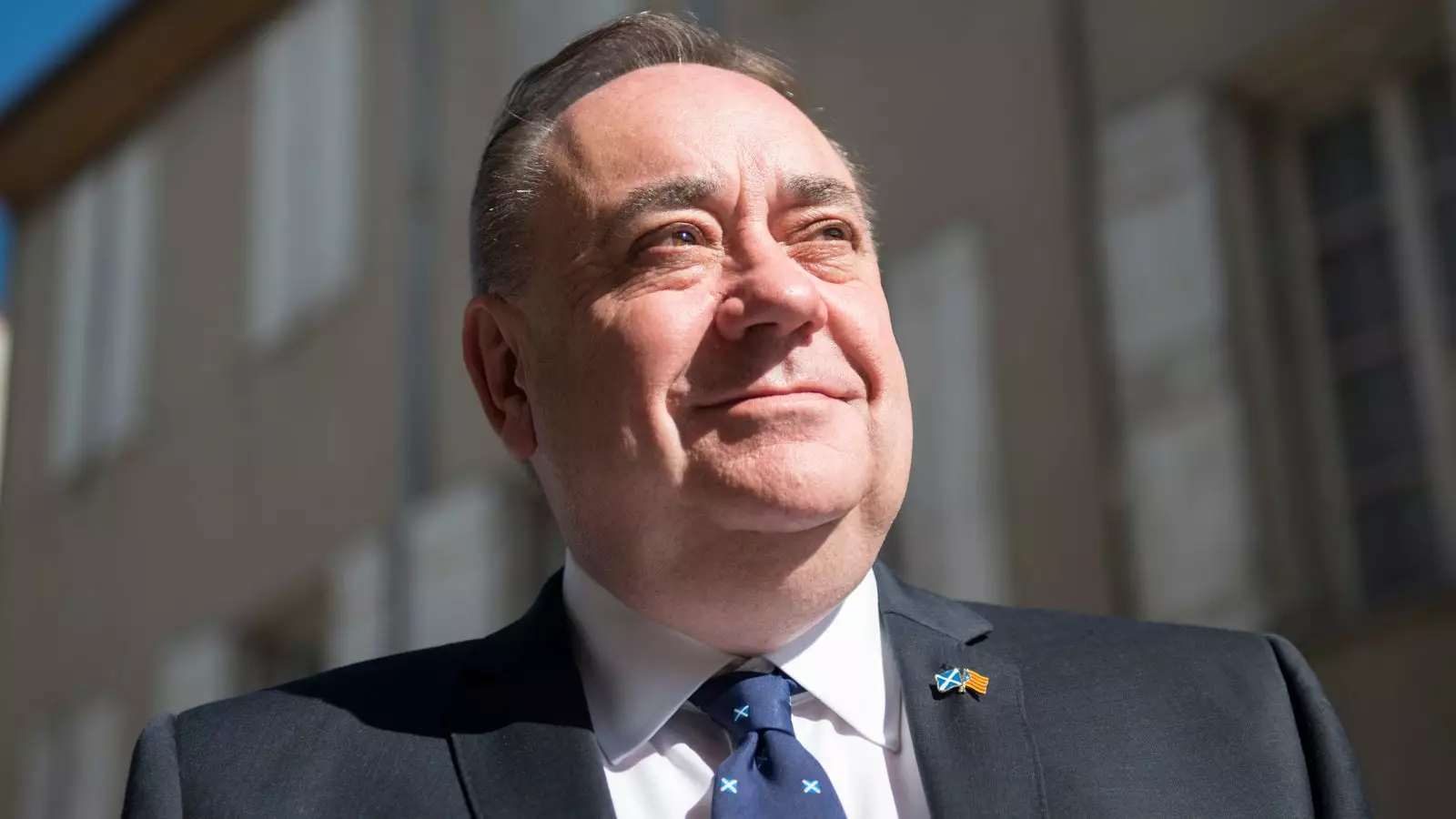The political landscape of Scotland has been shaken by the unexpected passing of Alex Salmond, former First Minister and prominent figure in the Scottish National Party (SNP). Salmond, who drew his last breath at the age of 69 following a heart attack while at a conference in Ohrid, North Macedonia, left behind a complex and multifaceted legacy. His sudden demise during a speech left not only his family but also the entire UK political community in a state of shock. Tributes have flooded in from various political figures, indicating the impact he had on the political scene.
The nuances of Salmond’s political career are a study in contrasts: he was both a cherished leader and a polarizing figure. His death has given rise to renewed discussions about his contributions to Scottish politics and the deep divisions he sometimes fostered during his career.
Salmond’s final moments came unexpectedly while he was actively engaged in public speaking, which adds a tragic layer to the narrative. Known for his fiery rhetoric and captivating speeches, his collapse during lunch in front of an audience speaks to the intensity with which he embodied his political pursuits. After his body was returned to Scotland on a chartered flight funded by philanthropist Sir Tom Hunter, an air of respectful solemnity surrounded the repatriation, marked by ceremonial traditions that celebrated his life.
The absence of government officials at his return to Aberdeen Airport prompted questions regarding protocol and family wishes. First Minister John Swinney’s comments highlighted the delicate balance between caring for family sentiments and public expectations—a difficult line to tread in times of personal grief against a backdrop of public office.
Today, a private funeral service is set to take place at Strichen Parish Church, marking a farewell deeply rooted in personal connection rather than political spectacle. Attended by family and close friends, this intimate setting allows for reflection and remembrance outside the public eye. Reverend Ian McEwan, a trusted friend of the Salmond family, is to lead the ceremony, enhancing the personal nature of the event.
Speeches by figures such as acting Alba Party leader Kenny MacAskill and SNP MSP Fergus Ewing will serve to honor the impact Salmond had within his party, echoing sentiments of admiration and respect that were a constant in Salmond’s political narrative. The private burial afterward adds a layer of seclusion, allowing for the family to grieve away from the spotlight.
In contrast to the private funeral, a public memorial is anticipated, providing an opportunity for the broader public to engage in collective mourning and celebration of Salmond’s life. This duality highlights the complexity of his public persona—beloved by many yet contentious to others.
Throughout his political career, Salmond championed the cause of Scottish independence passionately. Serving as First Minister from 2007 to 2014, he became a household name advocating for the rights and governance of Scotland. Despite the ultimate defeat in the 2014 independence referendum, his enduring advocacy continued, culminating in the formation of the Alba Party in 2021, further focusing his efforts on Scotland’s sovereignty.
Declaring Salmond as “a formidable politician” and “an amazing orator,” his family’s acknowledgment of his influence reflects an understanding of the deep emotional ties Salmond fostered among his supporters. The book of condolence opened at the Scottish Parliament provides a platform for residents to articulate their sentiments, ensuring that his contributions to Scotland’s political narrative do not go unnoticed.
As the political sphere shifts with his passing, Alex Salmond will be remembered as a figure who elicited passion and debate—one who inspired fervent loyalty among followers while simultaneously provoking fierce opposition. His commitment to Scottish independence and his extraordinary oratory skills solidified his place in Scotland’s rich political tapestry. The memory of Alex Salmond will undoubtedly linger as discussions about his legacy unfold, inviting us to reflect both on the man himself and on the ideas he championed.

